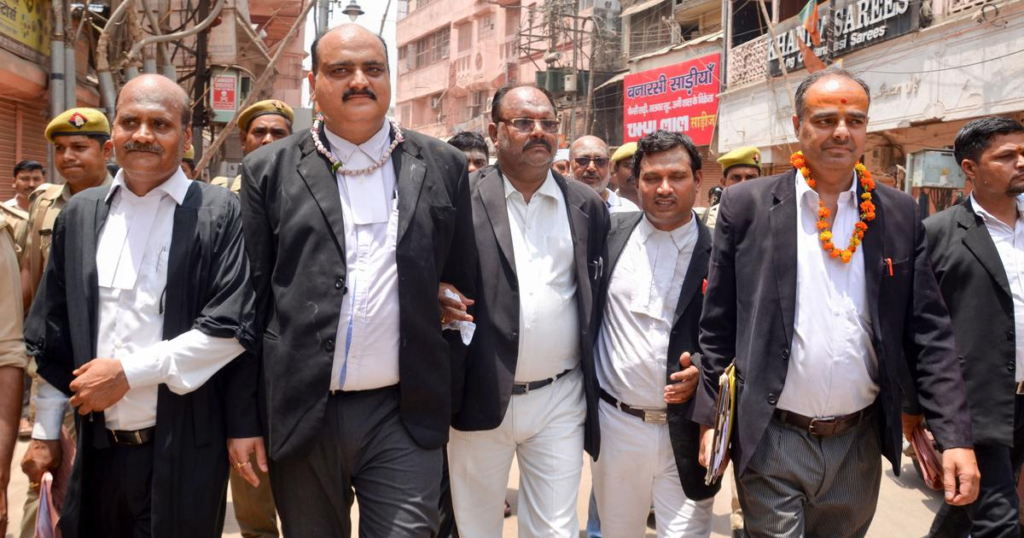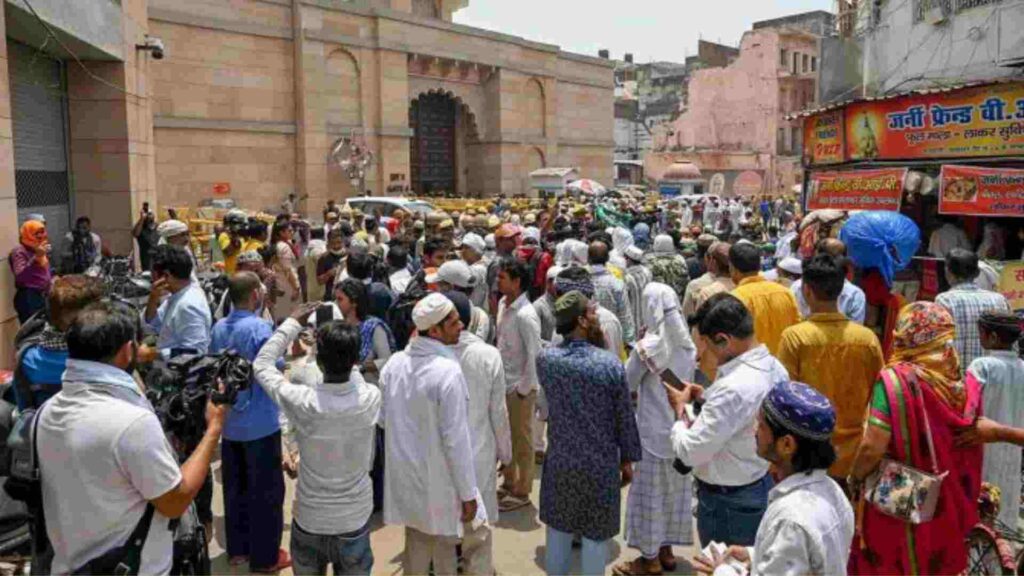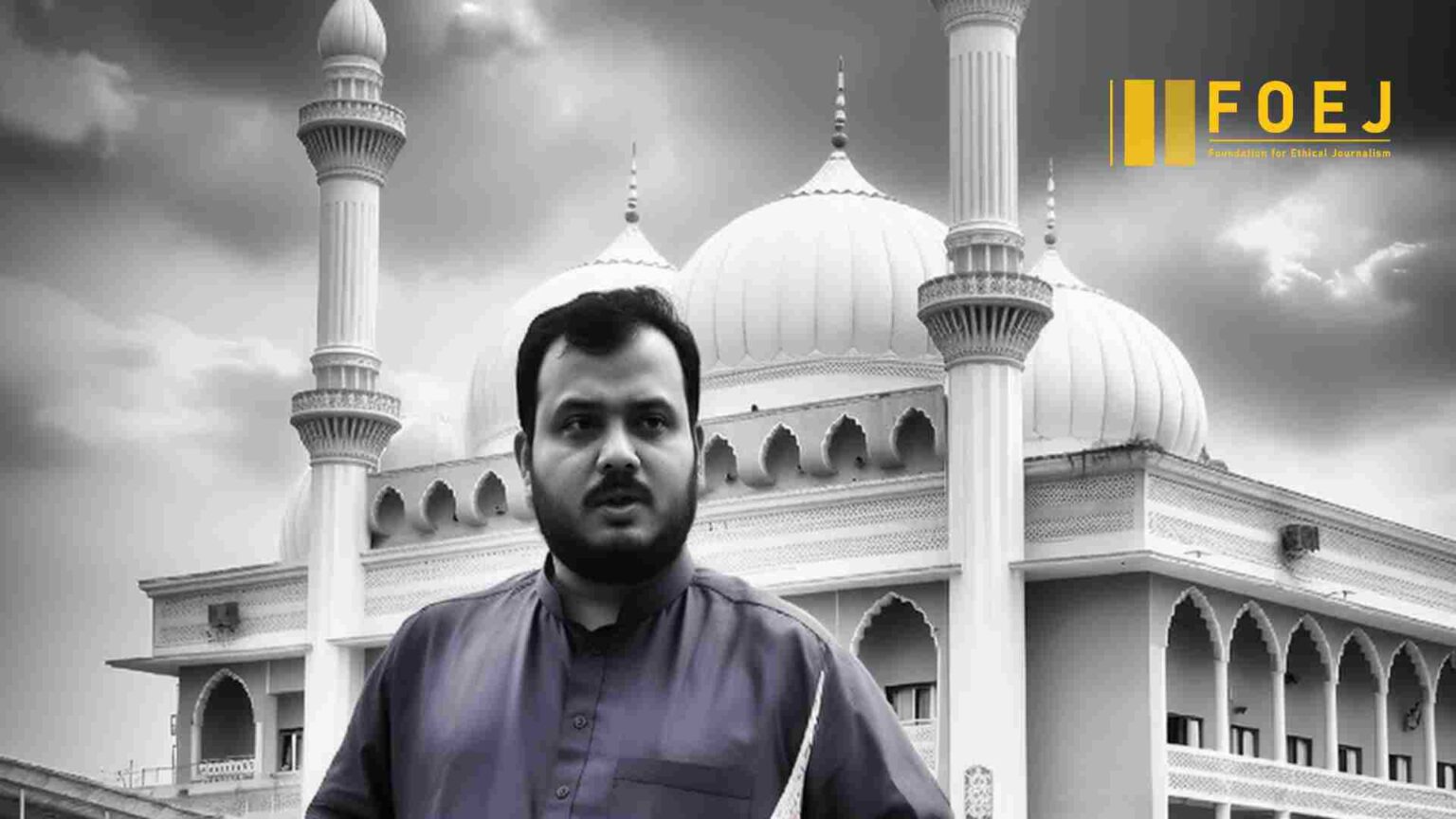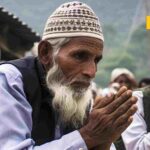Jitendra Singh Visen, one of the most prominent Hindu claimants, known for his active involvement in high-profile cases, including the Taj Mahal, the Idgah mosque in Mathura, and the ongoing Gyanvapi mosque, recently announced that he and his family are withdrawing from all cases involving the Gynavapi matter as a result of alleged “harassment”. Earlier, his attorney Shivam Gaur had also withdrawn from the lawsuits.
In a statement released on Saturday, Mr. Visen, the chairman of the Vishwa Vedic Sanatan Sangh, stated: “I and my family (wife Kiran Singh and niece Rakhi Singh) are withdrawing from all Gyanvapi-related litigation that we had filed in the interest of the country and religion in various courts.
He claimed that they were being harassed by numerous parties, including the Hindu side, and that they felt degraded. “In such a circumstance, due to limited resources and strength, I am leaving this. I can no longer fight this battle for ‘dharma’,” said Mr. Visen.
“Starting this ‘dharmayudh’ was perhaps the biggest mistake of my life.
Only those who deceive by using trickery in the name of religion belong in our society”, he claimed.
In a separate statement, Mr. Visen’s former attorney explained why he was resigning from both the 2022-started Krishna Janmabhoomi action and the 2021-started Gyanvapi case due to a breakdown in communication with the plaintiffs.

He claimed that after May 2022, he received no payment for challenging these matters.
Jitendra Singh Visen, one of the primary petitioners, declared on June 4 that his family was withdrawing from the case because of alleged persecution.
Former Gyanvapi petitioner writes to the president, requesting approval for ‘euthanasia‘
Rakhi Singh, Mr, Visen’s niece who was also involved in the Mosque lawsuit, formally requested euthanasia on Wednesday, June 9, 2023, and asked the President to approve her request. She claimed that the other four petitioners were attempting to “defame her and her entire family in Hindu society”.
Rakhi Singh is one of the five ladies who filed a petition in the case asking for permission to perform Hindu rites and prayers inside the Gyanvapi compound.
In May 2022, false rumors were spread about me and my uncle, Jitendra Singh Visen, stating that I, Rakhi Singh, was leaving the case. These rumors caused a misconception, leading to backlash from the Hindu community against me and my family.
She continued, highlighting the fact that “many people from the government and administration are also involved in this propaganda,” highlighting the psychological burden this has placed on both her and her uncle. She claimed that this had caused her much pain.
Rakhi wrote, “Therefore, you (President) are requested to approve my request for euthanasia and open the door for me to end this excruciating mental anguish.”
She stated that she would wait until June 9, 2023, at 9:00 am, for the president’s response. “Whatever decision is made moving forward will be mine if I don’t hear back from you.”
While this was all going on, the Muslim side recently suffered a defeat when the Allahabad High Court dismissed a petition challenging the admissibility of a lawsuit filed by Ms Rakhi to seek permission for regular worship of Shringar Gauri and other deities at the Gyanvapi property.

However, in May 2022, Rakhi broke off her relationship with the other ladies, and a conflict arose between Mr Visen and the attorneys of the four other plaintiffs.
Brief background on the Gyanwapi Mosque case
The Gyanvapi Mosque case is a legal dispute over the ownership of a mosque in Varanasi, India.
The mosque was built in the 17th century by Mughal emperor Aurangzeb on the site of a Hindu temple, according to Hindu plaintiffs. The plaintiffs have filed several lawsuits seeking to reclaim the site for Hindu worship. The first lawsuit was filed in 1991 by a group of Hindu priests.
The priests sought permission to worship at a shrine inside the mosque that they claimed was dedicated to a Hindu deity. The Allahabad High Court dismissed the petition in 1998.
In 2019, a group of Hindu lawyers filed a new petition in the Varanasi district court. The petition sought an archaeological survey of the mosque to determine whether it was built on the site of a Hindu temple. The court appointed a team of archaeologists to conduct the survey. The archaeologists submitted their report to the court in May 2020. The report found evidence of a Hindu temple at the site of the mosque. The report also found a “Shivling,” a Hindu religious symbol, in a well inside the mosque.

The mosque’s management committee challenged the report in the Allahabad High Court. The high court stayed the proceedings in the lower court in February 2021. In April 2022, the Varanasi district court ordered a fresh video graphics survey of the mosque. The survey was completed in May 2022.
The court is expected to deliver its verdict in the case soon. The Gyanvapi Mosque case is a sensitive issue in India. The case has sparked protests and communal tensions. The outcome of the case could have a significant impact on the religious and political landscape of India.
Here is a brief timeline of the case:
- 1991: First lawsuit filed by Hindu priests seeking permission to worship at a shrine inside the mosque.
- 1998: Allahabad High Court dismisses the petition.
- 2019: New petition filed by Hindu lawyers seeking an archaeological survey of the mosque.
- 2020: Archaeologists submit a report to the court finding evidence of a Hindu temple at the site of the mosque.
- 2021: Allahabad High Court stays the proceedings in the lower court.
- 2022: Varanasi district court orders a fresh video graphics survey of the mosque.
- 2022: Videographic survey completed.
- 2023: Varanasi district court expected to deliver its verdict.









